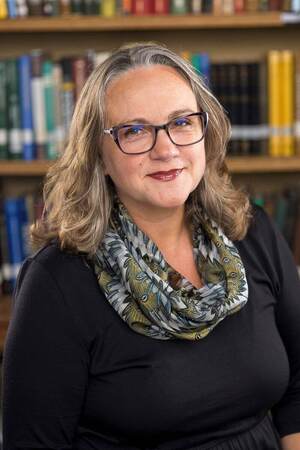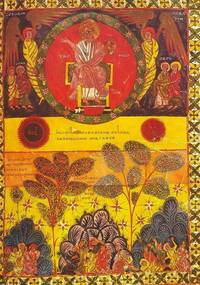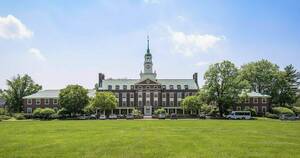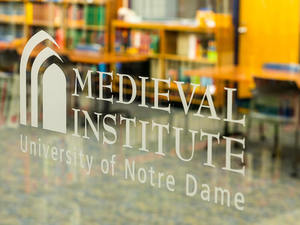Alumni Spotlight: Sarah Davis-Secord (Ph.D.'07)

The Medieval Institute is pleased to present our Spring 2024 Alumni Spotlight. In this series we feature the career paths of medieval studies alumni. Look for a new installment each semester, and follow our weekly news features regarding Medieval Institute-supported programming, events, guest lectures and general medievalist news on our news and events feed.
This semester’s alumni spotlight features Dr. Sarah Davis-Secord, Associate Professor of History at the University of New Mexico and a current member of the Institute for Advanced Study in Princeton, New Jersey. Dr. Davis-Secord completed her Ph.D. in History at Notre Dame in 2007 with a dissertation focused on the intercultural relationships between Greek Christians, Muslims, and Latin Christians in the central Mediterranean across the Middle Ages. Her current research explores the exchanges between Muslims and Christians in the early medieval southern Italian peninsula.
We asked Davis-Secord to share more about her time as a student of the Middle Ages at Notre Dame and the ways it prepared her for her creative career.
What first drew you to Medieval Studies?

I was drawn to medieval studies as an undergraduate Classics and History major at Northwestern University, where I learned to approach the past through a multi-disciplinary lens and to read across a wide variety of sources. I recall that my first undergraduate paper on a medieval topic was about the manuscripts of the Commentary on the Apocalypse by Beatus of Liébana, which captivated me with its strange beauty and led me to seek out every course I could find on medieval topics.
In the medieval world, I found elements that were recognizable to me from my Classics background, but which were transformed into something at once familiar and strange through the rise of the three major monotheisms and of many institutional frameworks with legacies in the contemporary world.
I feel like there is nowhere else where students can be exposed to so much about the Middle Ages from so many different perspectives. I always say that I learned as much from the visiting lecturers and from my graduate peers as I did from my coursework.
How has your Ph.D. from Notre Dame prepared you for your later career and current academic positions?
The fact that Notre Dame’s medievalist faculty, graduate students, and visiting speakers work across a broad spectrum of disciplines, fields, and periods has meant that I have a greater depth of knowledge and understanding of medieval worlds than if I had been more narrowly trained. I feel like there is nowhere else where students can be exposed to so much about the Middle Ages from so many different perspectives. I always say that I learned as much from the visiting lecturers and from my graduate peers as I did from my coursework.
I think that the particularly rich environment for medieval topics of Notre Dame is something truly special, and something that has made me a more confident educator. Even when I am teaching on topics that are outside my areas of expertise, I have a solid foundation of understanding about the Middle Ages to draw from.
What have you been working on at the Institute for Advance Studies? How is this opportunity shaping your scholarly interests?

I have been working on a book project about Muslims in the early medieval southern Italian peninsula. This was a region with truly heterogeneous populations and governance styles in the centuries prior to the Norman invasion, but the involvement of Muslim persons in its history is often relegated to side notes, or is framed solely in terms of violent invasion. I am using textual and material sources to identify other modes of encounter between Muslims and the Greek and Latin Christians of Italy, arguing that we cannot properly understand the region within a dualistic framework of Muslim versus Christian. Instead, I argue that Muslims in Italy were a fundamental part of its history that cannot be sidelined, and also that medieval Italians could imagine other forms of interaction between Muslims and Christians beyond simply violence. It is my hope that this book will help us think more deeply about how communities encountered each other across the divides of language and religion, and to understand early Italian history in richer ways.
My time at the Institute for Advanced Study has been simply amazing for the development of this project and for the depth of reading and thinking I’ve been able to do here. The time, space, and freedom to work within a community of other dedicated scholars has catapulted the project far past where it would otherwise be. And the conversations I have had here with the other medievalists have also enriched my thinking, introducing me to scholarship and ideas I had not considered, and pushing me to clarify my thoughts and arguments. It is also simply a wonderful atmosphere in which to work—peaceful, convivial, and beautiful.
What are some particularly influential moments from your time studying Medieval Studies at Notre Dame that you reflect back on?

Oddly enough, I often reflect on my Ph.D. exams and what a true intellectual exercise they were. I recall opening one of the questions from my advisor (Remie Constable) and seeing that I was being asked not to regurgitate knowledge I had read, but to produce a new analysis of evidence in my answer. It was an incredible moment when I recognized that I was being trusted to do that kind of high-level work even before my dissertation, and to know that I had indeed been prepared to do that kind of analytical work.
Also, I am always grateful as I reflect on the graduate student community at Notre Dame, and the non-competitive atmosphere that was fostered there. I remember so often walking into the reading room with a question or with some knotty passage of Latin on my mind, and finding somewhere there to talk to about it over lunch or coffee. It was a marvel to me then, and remains so now, that I knew I could always trust someone to be willing to help me out, and that people could come to me for help or conversation as well. Knowing that you are in a community of curious medievalists, rather than one divided by competition, is a true gift.